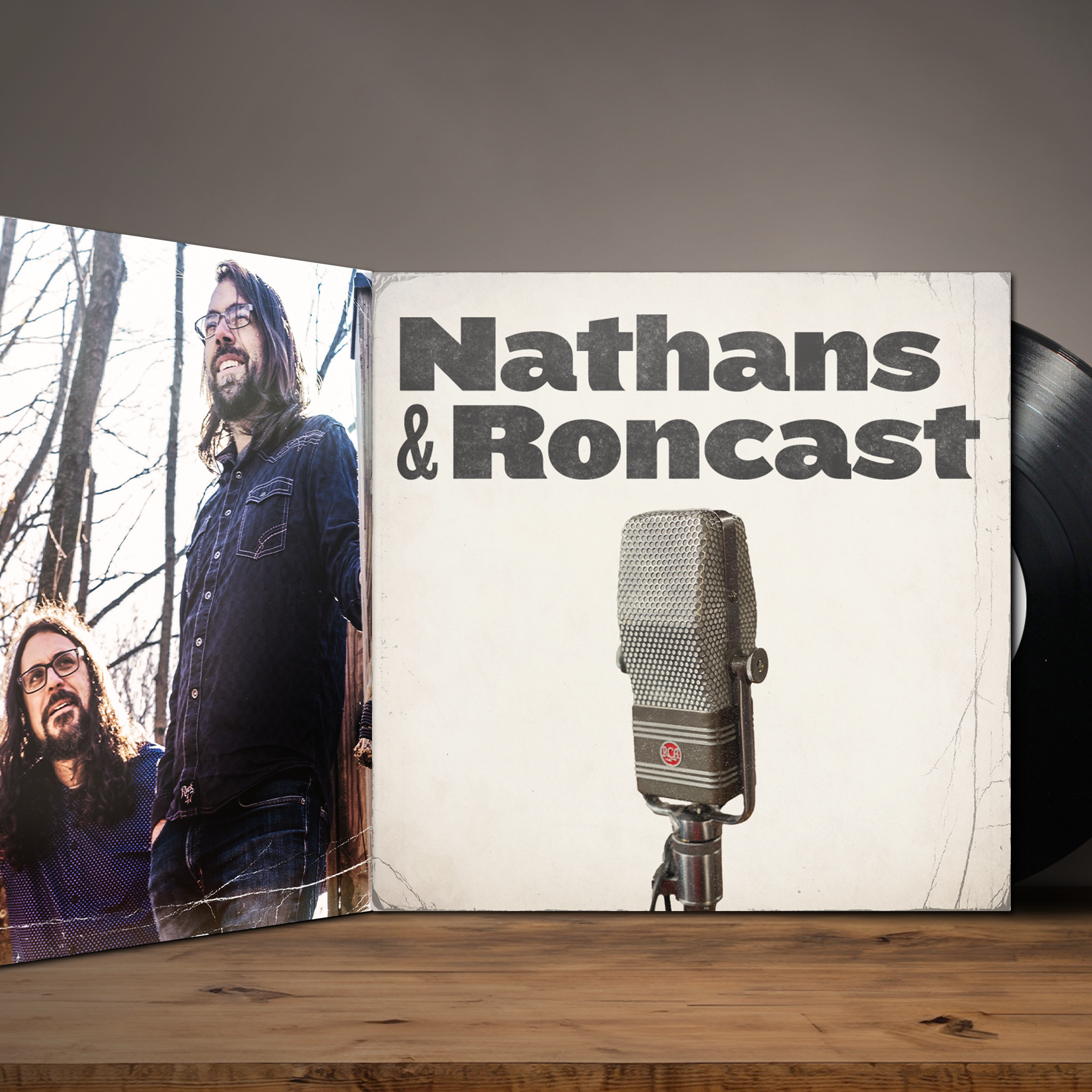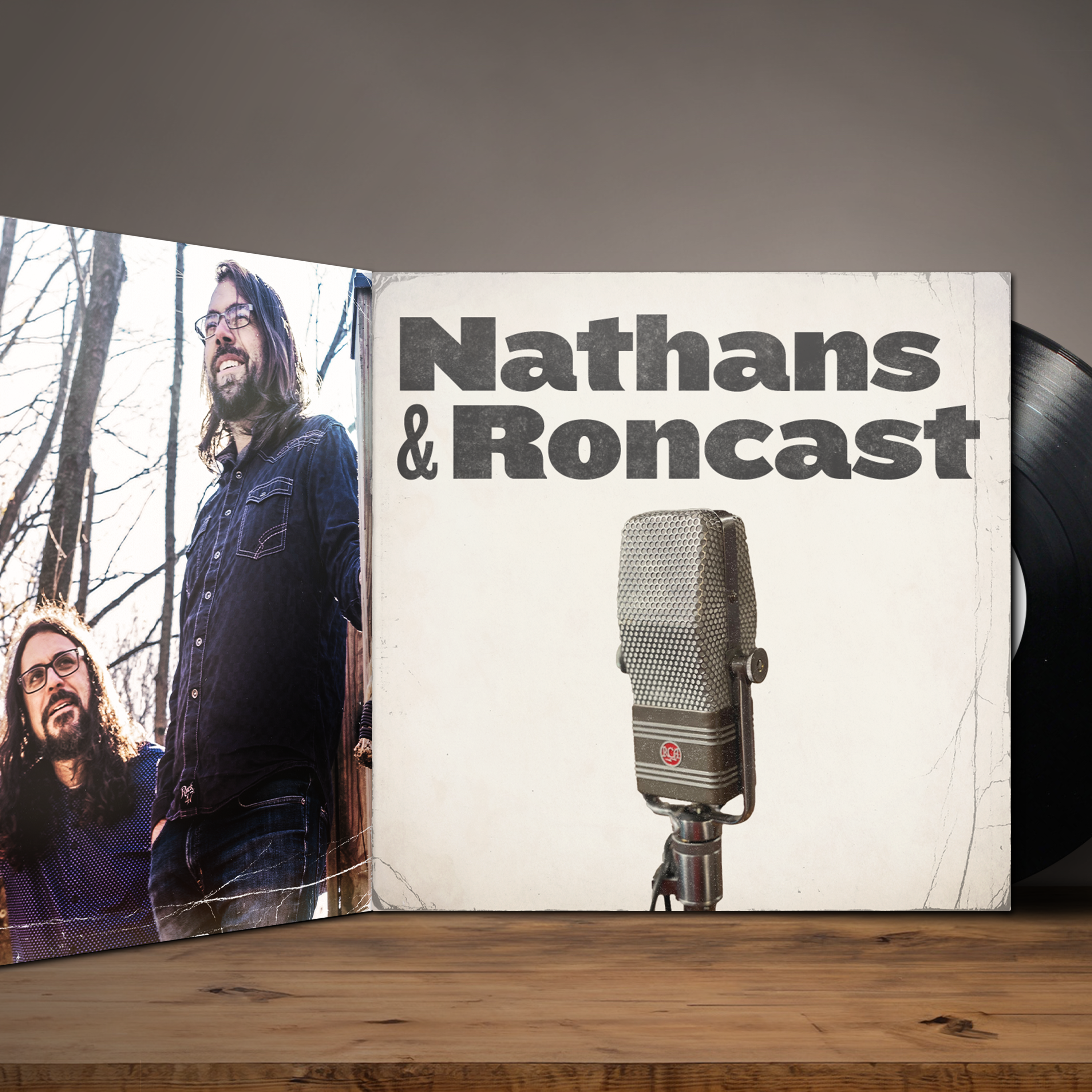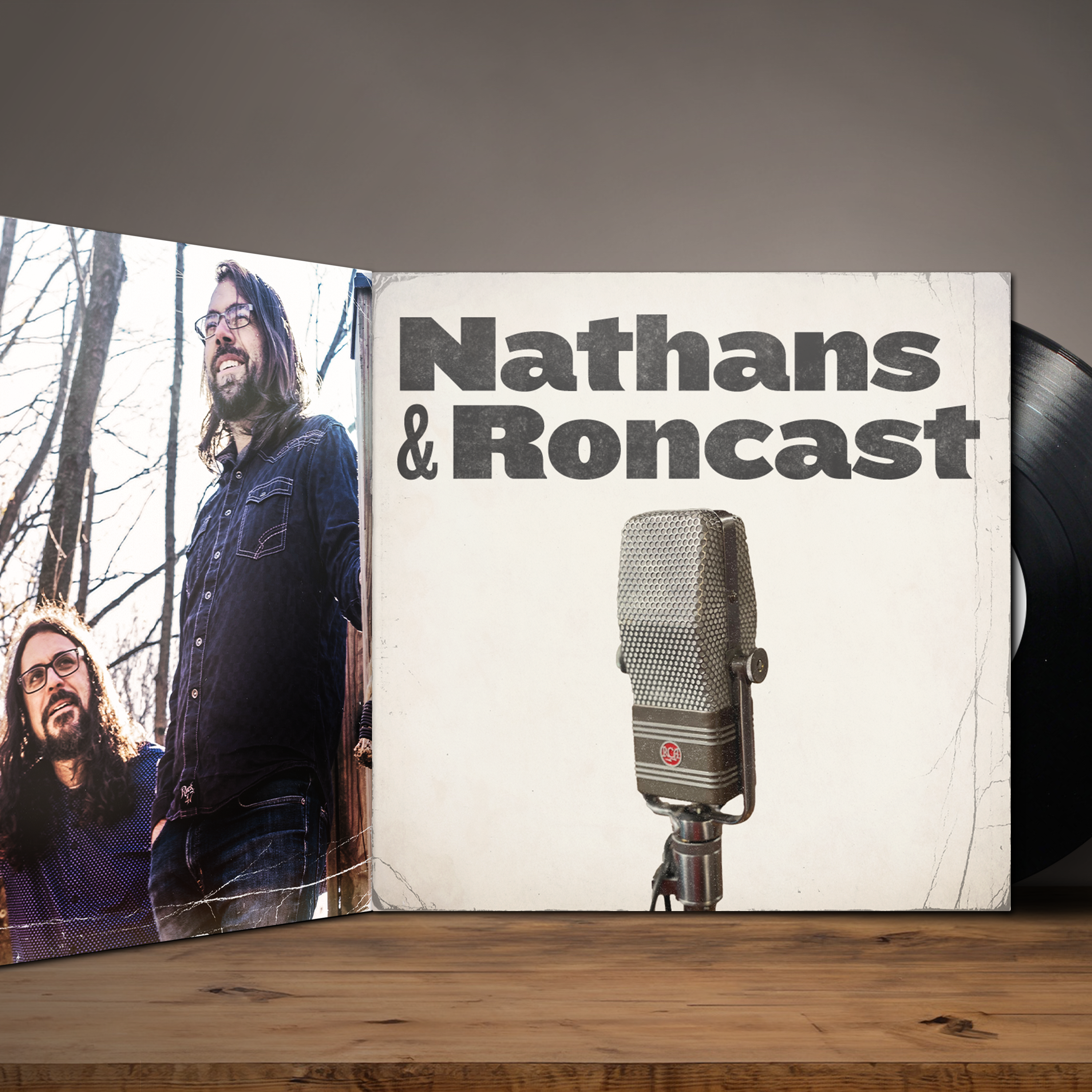Episode Transcript
[00:00:07] Speaker A: Hello. This is Aaron Nathans from the Nathans and Roncast, and the acoustic duo Aaron Nathans and Michael G. Ronstadt. And today I'm going to say a few more things about how writers typically characterize technology in popular song. It's usually negative, and heaven knows there are a lot of critical things we can say about the effect of computers on our lives. But in their best moments, whether it's electronic music or just creating the best gadgets, our devices are designed to bring out our humanity, to reveal the human spirit and allow people to do what we do best. And that's how I got turned on to the idea for one of our recent songs. There's a colorful piece of artwork that hangs in the stairwell of the computer science building at the university where I work during the day. I've passed it many times before. I gave it much thought. It says two words, hello world.
It took me a while to figure out that it was a reference to one of our faculty members, Brian Kernighan. He was one of the original Unix developers, and he's written twelve books, including the C programming language with Dennis Ritchie. It was within that book on the language c that he popularized the hello World program. Here's how the program works. If a bud encoder can successfully input a few lines, that they are rewarded with seeing the words hello world on their screen, and suddenly they're on their way. So, as a songwriter, I thought about the hello World program and considered what if you were to extend that idea to other things, other challenges, like hot Cross bun serves as a piano player's first learned piece. Can there be a hello world program for driving a car or knitting? Can there be a hello world for baking or woodworking or welding? Put another way, can the hello World program serve as a metaphor, a template for being brave enough to try something new? Hello World has been used many times in music, but that is all out of its original context. Most of those songs have been about just emerging. Michael Ronstadt and I set out to build a song along its original meaning, which is being brave enough to branch out and better yourself. We weren't thinking, let's say something positive about technology.
But if we could use technology as a metaphor for everything wrong in the world, why not use it as a poetic device for personal growth? Here's a bit of the song.
[00:02:39] Speaker B: Hello world. You can see my life.
You typed a couple of lines, and I came to life.
You made a couple mistakes, you were so depressed, but now you coded me right, and I'm your first success.
Hello world.
[00:03:17] Speaker A: You can hear our interview with Brian Kernighan in episode one of this podcast. That wasn't our only attempt at writing a song that was kind to computers. I also wrote a song about Alan Turing, who envisioned the first mechanical computer in an academic paper. His was a fascinating story because he did great things, but he was also very human. Besides being a visionary, he was a war hero, helping the Allies crack the code of the german warships during World War two. But just a few years later, he was persecuted for being gay. It's a big story, and it's hard to tell in a three minute song. When I read the 2009 official apology of United Kingdom Prime Minister Gordon Brown, I was struck by how well it summarized the man's life, and the one line at the end made for a perfect hook. To my song, the apology reads, Turing was quite a brilliant mathematician, most famous for his work on breaking the german enigma codes. It is no exaggeration to say that without his outstanding contribution, the history of World War two could well have been very different. He truly was one of those individuals we can point to, whose unique contribution helped turn the tide of war. The debt of gratitude he is owed makes it all the more horrifying, therefore, that he was treated so inhumanely. In 1952, he was convicted of gross indecency, in effect, being tried for being gay. His sentence, and he was faced with the miserable choice of this, or prison, was chemical castration by a series of injections of female hormones. He took his own life. Just two years later, the apology concluded. So, on behalf of the british government and all those who live freely, thanks to Alan's work, I am very proud to say we're sorry. You deserved so much better.
Sorry, Alan. You deserve so much better for me. That's all I needed to get started writing the song. Here's a bit of sorry, Alan.
[00:05:36] Speaker C: You had vision, you had smarts.
[00:05:42] Speaker A: But.
[00:05:43] Speaker C: We were careless with your heart.
You cracked the code, you had the dream, the answers lay in your machine.
The algorithm you'd feed in a device that could do the work of a thousand men.
O the thanks that you were due.
But instead we tried to program you and we made you pay the price for simply living out your life.
A nation ought to rise and fall together but maybe now I understand the many ways to be a man.
We're sorry, Alan. You deserved much better.
[00:06:52] Speaker A: For me, it wasn't the machines that were the problem. The machines were turing solution. The machines were a tool. The problems were people. AI isn't the problem. Cell phones aren't the problem. Computers aren't the problem. People made all of them. And we could destroy them if we wanted to. But we don't, because they do a lot of good things too. People are neither good nor bad, and technology is the same way. I think there's a lot of opportunity out there for artists to try something different. When we can connect our technology to its original purpose of serving the people who created it. It's possible to use technology as a way to reveal our humanity. Like any good metaphor, it's just a device.
I'm Aaron Nathans. Thanks for listening.


